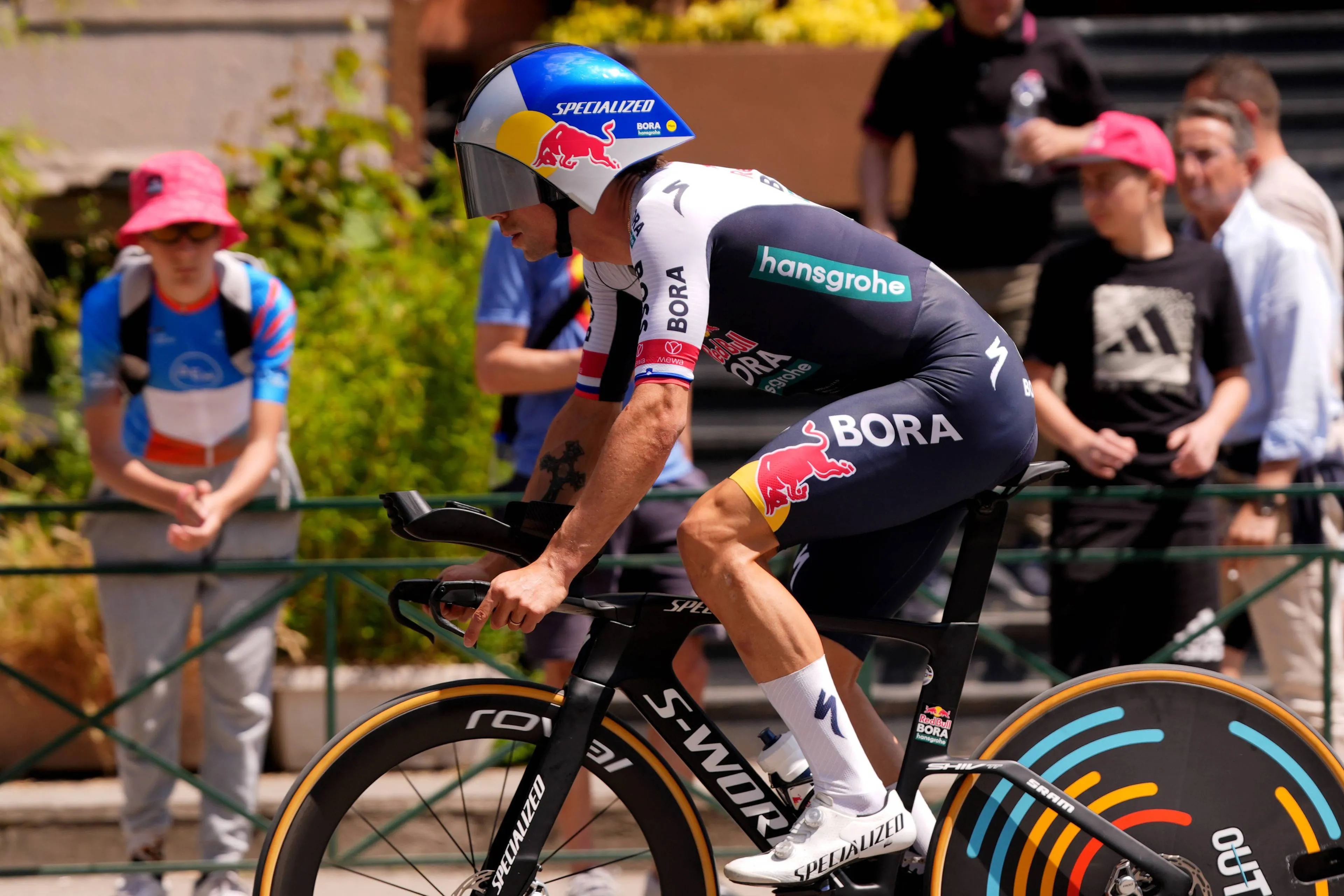“For us it is all a question of safety” - Tour de Suisse 2025 introduces GPS tracking and enhanced route analysis in major safety overhaul
CyclingSunday, 11 May 2025 at 09:00

In a significant move to enhance rider safety, the
organisers of the 2025 Tour de Suisse have announced several new measures ahead
of this year’s race, including the introduction of an advanced GPS-based
tracking system.
The decision comes in the wake of tragic incidents that have
shaken the sport. In 2023, Swiss rider Gino Mäder lost his life following a
high-speed crash during the Tour de Suisse. Just a year later, at the 2024 UCI
World Championships in Zurich, Muriel Furrer also died after a crash, further
fuelling calls for improved safety standards in professional cycling.
Read also
Furrer’s death occurred during particularly shocking
circumstances, as she lay isolated in the woods next to where she had initially
crashed before someone spotted her. This prompted serious questions to the UCI,
and the sport as a whole, as to how they did not react sooner, or why they did
not realise she was missing.
Tour de Suisse race director Olivier Senn outlined the steps
being taken in an interview with Cycling Pro Net, highlighting a shift towards
greater oversight and expert involvement.
"We have taken several precautions. First of all, all
the safety measures we will adopt will be verified by external experts who will
analyse our documents and decision-making processes with an independent
perspective. We have also reorganised the risk analysis of the route. In the
past, there were one or two people who had this task, but now there will be
five people.
Read also
“They will study each stage, identify any possible risk
points and take measures to reduce the dangers. In particular, we will have to
identify the curves that will be taken at high speed to take the appropriate
measures to secure them. The plan is to place workers near those curves, in
addition to using protection and informing the teams in advance in order to
minimise the risks.”
A central component of this year’s safety revamp is the
rollout of a new GPS monitoring system. All bikes will be fitted with small
tracking devices designed to detect irregularities such as sudden speed
changes, route deviation, or prolonged stationary periods.
"We hope that everyone will decide to use this system.
All bikes will be equipped with a small tracker that will sound an alarm in the
event of particular anomalies, such as the bike remaining stationary for 30
seconds, leaving the route or rapidly changing speed. In these cases we will be
immediately informed and will be able to react. All this information will be
managed by the Security Command Center that will keep an eye on the entire
race.”
Read also
However, the GPS initiative has not been universally
welcomed within the peloton. Some teams have raised concerns over how the
collected data might be used, particularly fears it could be exploited
commercially.
"There are doubts about the possibility that the data
collected will be used for commercial purposes. So it was decided that the
organizers cannot make these GPS systems mandatory. For us it is all a question
of safety, not commercial. We have introduced the possibility of not using this
system, but those who do so will assume the risks.”
Read also
With pressure mounting on race organisers across the
calendar to protect riders more effectively, the Tour de Suisse's 2025 approach
signals a more comprehensive and tech-integrated model. Whether teams will
widely adopt the new systems remains to be seen, but the message from
organisers is clear: rider safety is the priority, and the tools to improve it
are finally being put in place.
Hopefully, we will see a safe race in Switzerland for the
peloton next month, and in all the races going forward.
claps 1visitors 1
Just in
Popular news
Latest comments
- Clickbait title, not reality-based. Yawn.itsent18-02-2026
- lame, but probably correctantipodeanpedalfan18-02-2026
- Van Gils rode like wanted to get crashed or way too over confident that he was going to overtake Jan before getting pinched. It was obvious were Jan was going/had to go and MVG had the whole road to give an inch so he would have a chance to overtake on the rightjad2918-02-2026
- Double book this showing with the Melania documentary and you might get 100 people to see it...total !frieders318-02-2026
- Simple solution...stay off the barriers since you might get closed out ! Christen's sprint was legal as he was trying to get into the slipstream of Pidcock.frieders318-02-2026
- I believe Remco now understands that he will have issues reaching the top step as long as Tadej is in the Tour, whiles he's a year junior to Tadej he has had his upper body rebuilt twice now from crashes over the last few years. I think he has a chance to win the Tour in a few more seasons, you can only prepare yourself as best you can and try. He said he needs to race some more one week stage races, he should, he can probably win them all. I also believe Remco should aim for another Vuelta if he comes out of the Tour in good form and maybe he should think about the Giro again for next season. This is potentially Tadej's fifth Tour win coming up this year, no one is going to derail that unless he falls off the bike or gets really sick.awp17-02-2026
- Not only will the great narcissist get his voice, but he'll benefit financially from this as well. Who says that cheating and lying your way to victory doesn't pay?
 santiagobenites17-02-2026
santiagobenites17-02-2026 - It'll make a good double feature with the Michael Jackson soft focus biopic.LumbarDeniro17-02-2026
- Yeah, whilst MVDP would never break a bone on the MTB... 😂Sexass17-02-2026
- I think he looses too much weight and that leads to his implosions, when he doesn't worry about it or can get it exactly were he wants, like 2024 tour, he is betterjad2917-02-2026
Loading
Write a comment









